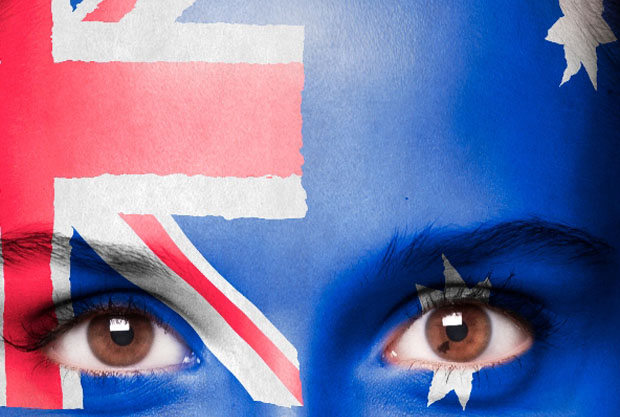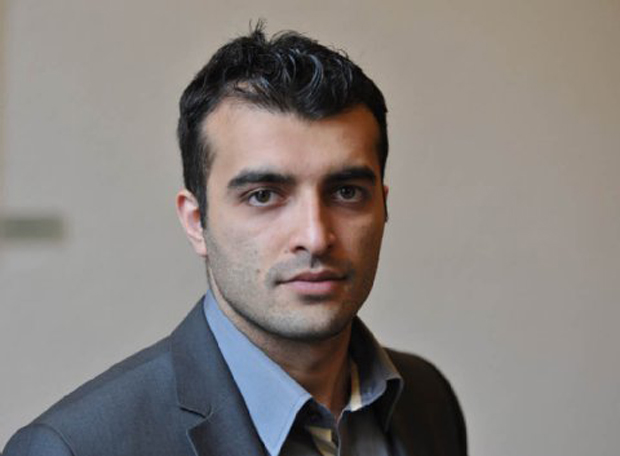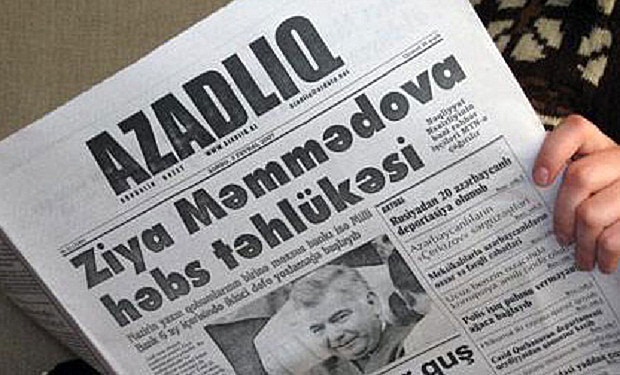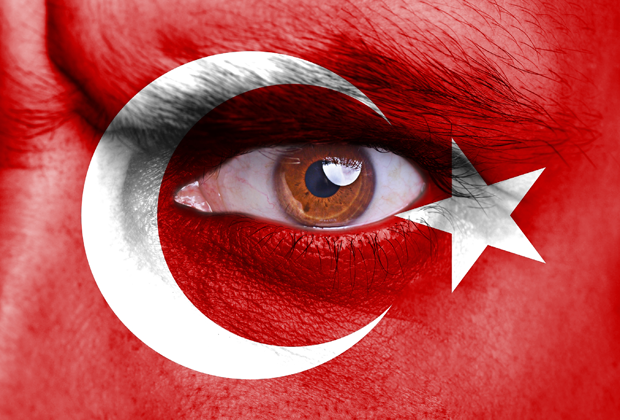5 Aug 2014 | Australia, Digital Freedom, News and features, Politics and Society

(Image: Shutterstock)
A piece of proposed legislation in the senate in Australia is attempting to wrestle with the legacy of the Snowden leaks with potential implications for media freedom.
In late 2013 information was released to the world that revealed the depth and breadth of the covert architecture in place to monitor and harvest personal data. The unprecedented capabilities and actions of surveillance agencies the world over ignited debate around the nature of privacy in our digital age. But the emergence was not manufactured by the security apparatus or by governments; it was the result of leaked information being published by the press.
Now, a new law proposed by Attorney-General, George Brandis, the National Security Legislation Amendment Bill (no.1) outlines a number of reforms to “modernise and improve” Australia’s capabilities to tackle national security threats. If passed, it could have significant implications for Australian media.
The creation of Special Intelligence Operations (SIO) – covert operations that offer limited immunity for its participants to engage in unlawful conduct – as well as the expansion of computer access warrants are among the sweeping reforms contained within the bill.
Further reforms outline new offences for “unauthorised dealings with an intelligence-related record, including copying, transcription, removal and retention”. But as highlighted by publications such as The Guardian, the Australian Lawyers Alliance (ALA) and members of the opposition, including Greens Senator Scott Ludlam, the bill opens up the possibility for criminal culpability to lie beyond the security operatives dealing with intelligence-related records, to journalists and media outlets who report on information they receive about SIOs. The bill’s explanatory memorandum states that the offence applies to:
“[D]isclosures by any person, including participants in an SIO, other persons to whom information about an SIO has been communicated in an official capacity, and persons who are the recipients of an unauthorised disclosure of information, should they engage in any subsequent disclosure.”
The transcript of the bill’s second reading demonstrates Brandis’s opinion of Snowden, dismissing him as a “so-called ‘trusted insider’” (he has previously referred to the NSA whistle-blower as an “American traitor”). But while he has stated that the bill is not intended to threaten media outlets or limit media freedom, the wording of the bill has set alarm bells ringing. Quoted in The Guardian, ALA spokesperson Greg Barns stated that this bill “takes the Snowden clause and makes it a Snowden/Assange/Guardian/New York Times clause.”
He goes further, explaining how the structure of approving SIOs, threatens media coverage: “ASIO [Australian Security Intelligence Organisation] could secretly declare many future cases to be special intelligence operations. This would trigger the option to prosecute journalists who subsequently discover and report on aspects of these operations.” This lack of clarity in the wording of the bill, as well as the limited oversight as to how the bill can be used – political appointees have the final say – sets a precedent for potential restrictions on media freedom both in Australia and, as a template for action, globally.
The size and scale of the surveillance network, involving governments worldwide, most notably the “five eyes” countries, the US, UK, Canada, New Zealand and Australia raises uncomfortable questions, with no forthcoming answers. The reforms proposed by Brandis seem to suggest that the best way of satisfying these questions is to ensure they are not asked in the first place.
Restricted by inadequate whistle-blower protections, due in part to his status as a private contractor, as well as the national security implications of the leaked documents, reaching out to the media provided to be the sole outlet for Ed Snowden. But it seems now that it could be the media who will be punished for such inadequate protections.
After two readings in the Senate, the bill is poised to be debated in September. And although Brandis has set his sights elsewhere, having mentioned data retention in an interview to ABC, the precedent set by Australia, were this bill to pass, could resonate throughout the world. Scott Ludlam outlined his concern: “I can’t see anything that conditions it or carves out any public interest disclosures. I can’t see anything that would protect journalists.”
This concern does not seem to be shared across the political spectrum. The Australian Prime Minister, Tony Abbott called on journalists for a “sense of responsibility, a sense of national interest”, and the Liberal senator, Cory Bernardi went further by stating that “we need to make sure the press are free to report within the constraints of what is in, I’d say, the national interest”.
Would protecting national interests include the refusal to publish information surrounding the allegations that the Defence Signals Directorate, or DSD, (now called the Australian Signals Directorate) attempted to monitor the calls of the Indonesian president, his wife and senior politicians? What about the DSD’s desire to share harvested online data (or “unminimised” metadata) with other governments without any privacy restraints?
If decisions such as these are left to those who define the role of the press as one of propagating national interests, then the freedom that Bernadi speaks of is surely no freedom at all.
This article was published on August 5, 2014 at indexoncensorship.org
4 Aug 2014 | Azerbaijan, Azerbaijan News, Europe and Central Asia, News and features

(Photo: National Endowment for Democracy)
Azerbaijani human rights activist Rasul Jafarov has been charged with tax evasion, illegal entrepreneurship and power abuse and sentenced to three months of pre-trial detention. Jafarov’s detention follows the arrest last week of Leyla Yunus and the disappearance of the print edition of Azadliq from the streets of Baku. Arif Yunus was put under a three month pretrial detention on 5 Aug.
Jafarov, an Index contributor, is a prominent campaigner and critic of Azerbaijan’s government, led by President Ilham Aliyev. He has worked on putting together a detailed list of the country’s some 140 political prisoners and was one of the organisers behind the Sing for Democracy campaign, in connection with the 2012 Eurovision final in Baku. He was charged with three articles of the Penal Code by Rasul Nasimi district court in the capital Baku, following interrogation at the Prosecutor General’s office. Last week he was handed down a travel ban.
His arrest comes days after fellow human rights defenders Leyla Yunus and her husband Arif were charged with crimes including high treason. Last week, Azadliq, of the country’s few remaining independent newspapers, was also forced to suspend publication of its print edition due to financial troubles. The charges against Jafarov are the same as those that in May saw Anar Mammadli, another prominent human rights defender, sentenced to 5.5 years in prison.
The Institute for Reporters’ Freedom and Safety (IRFS), an Azerbaijani press freedom organisation, said Jafarov’s arrest is “part of a dedicated campaign aimed at suspension of activities of unregistered NGOs in Azerbaijan”. Registering NGOs in Azerbaijan is difficult — Jafarov has reportedly attempted to register his organisation Human Rights Club a number of times without success. As a result, many groups operate without a licence.
There has recently been an escalation in the targeting of opposition voices in Azerbaijan, according to IRFS, who say this crackdown has included state-controlled media smear campaign, raids on NGO offices, confiscation of equipment, suspension of NGO bank accounts, and intimidation and legal pursuit of NGO workers.
In May, Azerbaijan assumed chairmanship of the Council of Europe’s Committee of Ministers, whose tasks include “ensure[ing] that member states comply with the judgments and certain decisions of the European Court of Human Rights”.
“Further deterioration of the situation with fundamental rights and freedoms, as well as repressions against the civil society is incompatible with Azerbaijan’s international commitments, especially in light of its current presidency in the Council of Europe,” said the Civic Solidarity Platform, a network of 60 human rights NGOs of the OSCE region, in a statement.
“We know that the charges against those brave human rights defenders are politically motivated. The authorities want to silence those holding the country to its international obligations and commitments, including within the Council of Europe” said Maria Dahle, Executive Director of the Human Rights House Network.
Index Reports: Locking up free expression: Azerbaijan silences critical voices (Oct 2013) | Running Scared: Azerbaijan’s silenced voices (Mar 2012)
An earlier version of this article stated that Arif Yunus had been arrested last week. This was incorrect. Yunus was arrested on 5 Aug and sentenced to a three month pretrial detention.
This article was posted on August 4, 2014 at indexoncensorship.org
4 Aug 2014 | Awards, Azerbaijan, Azerbaijan News, News and features

Index Award winning Azadliq newspaper was forced into cancelling its print run last week with little hope of restoring its publication.
It is not that easy to get to the editorial office of Azadliq in Baku. Once you enter the building of Azerbaijan Publishing House, a police officer, who sits close to a statue of Heydar Aliyev, the late “father of the nation” and the actual father of the incumbent president Ilham Aliyev, asks you to call the office of the newspaper to get someone to pick you up downstairs. “Everyone in Baku knows their number,” an old lady in the phone room says as she tells me how to reach Azadliq.
Rahim Haciyev, an acting editor of the daily, smiles as he greets me, and leads to the top floor of the building that looks like a shattered remnant of the Soviet past. We pass a dark and neglected corridor that seems to be last painted around 1989 – the year Azadliq was launched.
The last day of July 2014 can become the end of what was the last independent daily in Azerbaijan as it was forced into suspension of publication.
“We owe 20,000 manat (about £15,000) to the publishing house, and they refuse to print our newspaper unless we pay the debt. But we are not able to, because we don’t get money for the newspaper sales. Gasid, the state-owned press distribution company, owes us 70,000 manat (about £53,000), which should be enough to cover our debts and operation costs. Its general manager is an MP and a member of the ruling party – and they just won’t pay us,” says Rahim Haciyev.
The authorities of Azerbaijan have used economic pressure to silence one of the last critical voices in the country. Last year the newspaper was a target of defamation suits that have resulted in £52,000 in fines, which were followed by bans against selling the paper at tube stations and on the streets of Baku. Thus, Azadliq lost sales of 3,500 copies daily – and with the official distribution network refusing to pay for the copies they sell, it has resulted in a complete blockade of any revenue streams. The State Press Support Fund refused to support the paper as well.
“The authorities have tried to stifle us for a long time, and it looks like they have finally succeeded. I don’t see them letting us go back to print. The only chance is strong pressure from the West, but I don’t expect this to happen. The Western democracies are now preoccupied with weakening the influence of Russia in the region, so it is unlikely they are going to put too much pressure on its neighbouring countries,” says Haciyev.
Azadliq’s editor also sees pressuring of the paper as a part of a wider campaign of the Azerbaijani authorities aimed at silencing of the country’s civil society. Two well-known human rights defenders, Leyla Yunus and Rasul Jafarov, were arrested last week; they will be detained pending trial for three months each.
“At the moment, when repressions against the civil society and human rights activists are getting tougher, the last thing they need is a critical newspaper that spreads the word about their clampdown. And we were the last daily that reported on those cases,” Haciyev points out.
Azadliq’s editorial team keeps working, although they have not been paid for two and a half months. The paper’s website, which is one of the most popular news source online in Azerbaijan, is still updated, but nobody knows for how long.
“Azadliq” means “freedom” is Azerbaijani. There is less and less freedom in the country that looks set to take a sad lead on the number of closed down media outlets and human rights activists in jail.
This article was posted on August 4, 2014 at indexoncensorship.org
1 Aug 2014 | Mapping Media Freedom, News and features, Politics and Society, Turkey

Photo illustration: Shutterstock
Since the beginning of this year, cases of assault against journalists, legal threats and lay offs worsened Turkey’s already precarious state of press freedom.
In May, Freedom House ranked Turkey’s media climate “not free.” The Istanbul-based non-profit news website Bianet publishes quarterly media monitoring reports on press freedom breaches within Turkey. Along with new fines against media outlets and other ominous restrictions, the most recent report shows that physical assault against journalists increased over the last three months. According to the new report, 54 journalists were victims of assault between April and June. Bianet’s previous report documents “at least” 40 accounts between January and March.
Erol Önderoğlu, author of Bianet’s media reports, attributes the increased number of assaults this spring to recent demonstrations where journalists were injured. This May, protestors commemorated the first anniversary of the Gezi Park demonstrations, just a few weeks after large protests took place on May 1. Önderoğlu says police and other security officers are more prone to use violence at protests. “They think they have the right to exert a certain violence against demonstrators,” he says. Önderoğlu sees last year’s Gezi Park protests as a turning point for this kind of aggression towards journalists at demonstrations. Since then, Önderoğlu says, police officers became the main source of violent assault against journalists.
At May 1 protests in Istanbul, at least twelve journalists were injured while reporting. One editor for the news website t24 was detained by police for hours. Violence against journalists erupted again during the Gezi commemorations this year. While reporting live from the protests, CNN correspondent Ivan Watson was harassed by plainclothes security officers who demanded to see his passport. Watson and his crew were then detained and Watson tweeted that he was kneed while in police custody.
Many journalists don’t file legal complaints after they’ve been assaulted. According to Önderoğlu, especially journalists working for mainstream news outlets feel their own jobs may be threatened if they speak out against police. “They have this feeling that by condemning civil servants and police officers for using force, they are in a way putting the board and the directors of their own media organization in a bad position,” Önderoğlu says, adding that because of the lack of editorial independence in Turkey, conflicts with government can lead to journalists being fired. Earlier this year, the extent of Prime Minister Erdoğan’s influence over some media organizations was revealed by leaked phone conversations between Erdoğan and the owners of media outlets, including the newspaper Milliyet and broadcaster Habertürk.
The journalists Ahmet Şık, Onur Erem and Ender Ergün did file a complaint over abuse of authority after being assaulted during the 2013 Gezi Park protests. Six months later, their cases were rejected by an Istanbul prosecutor. Bianet reported that 153 journalists were injured during the Gezi Park protests. There still has not been an investigation into those injuries, and Önderoğlu sees the rejection of Şık, Erem and Ergün’s cases as a bad precedent for assaulted journalists seeking justice. “We need not only the stop of police aggression,” Önderoğlu says, “but also the end of impunity against policemen of such accusations.”
More reports from Turkey via mediafreedom.ushahidi.com:
Turkey: Broadcaster threatens to stop covering presidential candidate
Turkey: Physical assaults on journalists increase
Turkey: Media monitoring agency revokes license for Germany-based broadcaster
Turkey: Constitutional Court rules investigation into Hrant Dink’s assassination violated family’s rights
Turkey: Prime Minister files legal complainst against newspaper editor
This article was posted on August 1, 2014 at indexoncensorship.org




